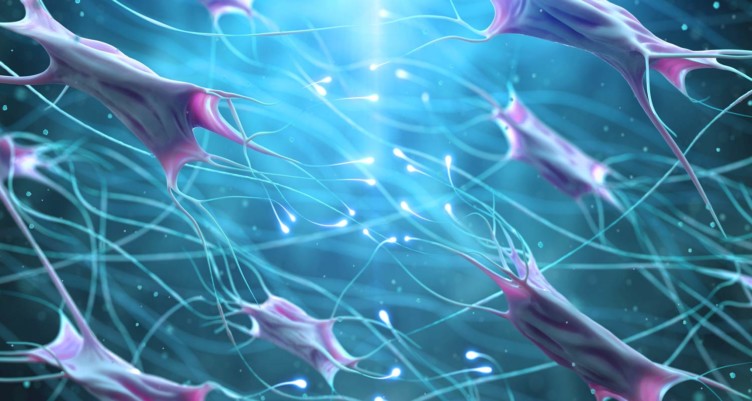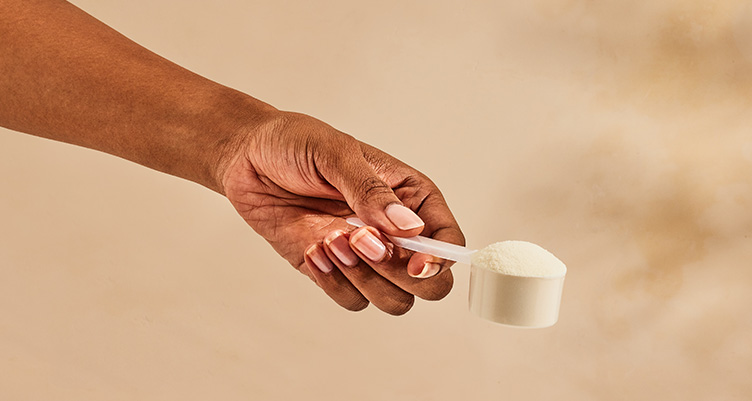Study Shows Collagen Peptides are More Than Protein Building Blocks

- Sufficient collagen production keeps your skin smooth, your joints hydrated and flexible, and your bones strong.
- A randomized, double-blind, placebo-controlled, study shows that consuming collagen peptides, which are essentially pieces of collagen protein, reduces wrinkles and keeps your skin hydrated and flexible.
- Researchers also found that collagen peptides have activity in the body even when they’re not linked together in the form of a complete protein.
- Keep reading to find out what the science says about collagen peptides.
I realized how important collagen was when I was hiking in Tibet, and the long trek plus being overweight destroyed my knees. When we went out to eat that night, I knew I needed collagen or cartilage, so I ordered a big bowl of steamed pig’s ears. It tasted about as gross as you would expect, but my knees felt so much better in the morning.
Canisters of collagen peptides are all over your social media feed, and for good reason. Sufficient collagen production keeps your skin smooth, your joints hydrated and flexible, and your bones strong.[1][2][3][4]
Chances are, you want to make sure your body makes plenty of high-quality collagen. The best thing to do to make sure your body can make collagen is to give it what it needs to assemble as much collagen as it can. Keep reading to find out how to support your body’s collagen production.
Amino acids, peptides, and collagen
 As with other proteins, your body uses amino acids and peptides, which are pieces of proteins, to make collagen fibrils (strands of collagen protein). What does that all mean? Think of amino acids as a letter, peptides as a word, and complete proteins as a sentence. You get amino acids and peptides by eating foods containing protein, and your digestion process breaks proteins down into to the smaller components that it can use.
As with other proteins, your body uses amino acids and peptides, which are pieces of proteins, to make collagen fibrils (strands of collagen protein). What does that all mean? Think of amino acids as a letter, peptides as a word, and complete proteins as a sentence. You get amino acids and peptides by eating foods containing protein, and your digestion process breaks proteins down into to the smaller components that it can use.
A randomized, double-blind, placebo-controlled, human study (aka the most reliable type of study design) shows that consuming collagen peptides, which are essentially pieces of collagen protein, measurably reduces wrinkles and keeps your skin hydrated and flexible.[5]
RELATED: Your Complete Guide to Collagen
Amino acids and peptides can turn on collagen-making cells
 Researchers also noticed that collagen peptides do more than just wait around to become building material for proteins. They actually wake up your fibroblasts, which are the cells that kickstart the collagen-making process.[6] Another thing that gets your fibroblasts going is vitamin C, which is essential to collagen production. Your fibroblasts won’t make collagen without vitamin C.
Researchers also noticed that collagen peptides do more than just wait around to become building material for proteins. They actually wake up your fibroblasts, which are the cells that kickstart the collagen-making process.[6] Another thing that gets your fibroblasts going is vitamin C, which is essential to collagen production. Your fibroblasts won’t make collagen without vitamin C.
Here are some things to eat to give your body what it needs to produce collagen:
- Bone broth
- Skin-on pork and salmon skin
- Tougher cuts of meat like tendon, tripe, oxtail and knuckle (slow-cook them to make them tender and delicious)
- Collagen peptide supplements
- Vitamin C foods like lemons, spinach, and broccoli



